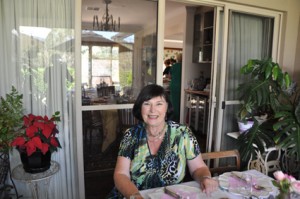Publication deal heralds new chapter
Hello everyone, The stars above us must be in alignment because March has brought astounding happenings to set my life on a new trajectory.
Hoorah! I have sold my manuscript, Bon Voyage Mesdames, to Harlequin Publishers. Adding to the excitement, my agent, Selwa Anthony advised me of this splendid deal a few days after Writers Week here in Adelaide. This will be my second book following From France With Love, published 9 years ago. Yes, it’s a long time ago, but this second publishing deal makes me feel like a real author.
I fly to Sydney to sign the publishing contract on Friday, April 15 with a publication date of April 2017.
My close friends will testify to my jitters over the past 6 months since October when I despatched the second draft to Selwa. It had taken me almost 12 months to complete a second draft.
My friend Jane, with whom I shared this extraordinary journey back to France after Olivier’s death, never doubted that it would be picked up by an astute publisher. Yes, its unashamedly Francophilic, as I loved France even before I met Olivier, but the journey was also the catalyst for my personal resurrection. Paris, worked its magic once more in my life, lifting me out of the emotionally crippling black cloud of grief to allow the sunshine in; to feel that delicious joie de vivre once more. Writing about loss is timely, just like back in the 60s when it was simply the time to write about sex. But so are the main threads of my story – the richness of women friends, food phobias, travel adventures in France and how to learn to embrace life again, to laugh and have fun once more.
Once when Baby Boomers were young, the social script was love and romance, marriage, babies and the good life. But that first wave, born in 1946, turn 70 this year and millions more are moving into their 60s. Almost overnight, Boomers’ easy ride along honey-laden highway of life has come face to face with loss. Suddenly love is intrinsically linked not to romance, but to loss. Loss of our ageing parents and for those unlucky ones, as I was, the loss of a beloved spouse. Sadly, some people never recover from grief. But I discovered so many pleasures in France that slowly happiness seeped back into my heart.
